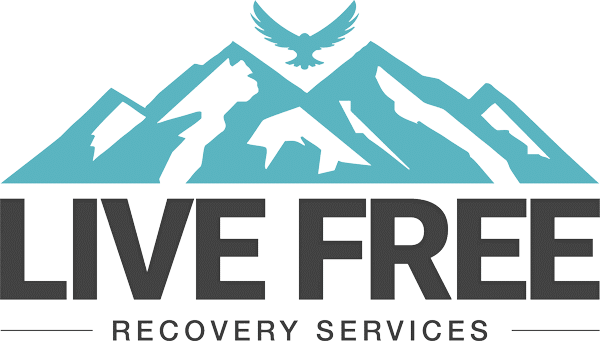Dual-diagnosis treatment is designed to provide the skills and resources needed to manage both a mental health and substance use disorder at the same time. Treatment typically includes individual counseling, group counseling and medication-assisted treatment. Through a combination of these evidence-based treatments, patients learn to recognize and manage their triggers, prevent relapse and develop healthier coping skills.
The effectiveness of dual-diagnosis treatment lies in its ability to address both the mental health and substance use disorder together. By treating both conditions simultaneously, a recovering addict can learn to manage the underlying issues that may have contributed to their substance use in the first place. Additionally, dual-diagnosis treatment can help patients understand how their mental health and substance use disorder interact, which can be useful in recognizing and addressing potential triggers.
Table of Contents
What Is Dual-Diagnosis Treatment?
Addiction and mental health disorders are closely intertwined. People with mental health issues are more likely to develop an addiction to drugs or alcohol. Conversely, people with addiction are at a higher risk of developing a mental health disorder. In addiction recovery, doctors and clinicians refer to this relationship as a dual diagnosis.
An estimated 50% of people with a mental health disorder will also struggle with addiction. Similarly, around 50% of people with an addiction will have a co-occurring mental health disorder. The most common mental health disorders associated with addiction include depression, bipolar disorder, post-traumatic stress disorder, anxiety disorder, attention deficit hyperactivity disorder, obsessive-compulsive disorder and schizophrenia.
Depression is a mental health issue characterized by persistent feelings of sadness, hopelessness and a lack of motivation. People with depression may have difficulty functioning and find it hard to engage in activities they used to enjoy. Anxiety is an overwhelming feeling of fear and apprehension that can interfere with daily life.
PTSD is a mental health condition that can develop after a person experiences a traumatic event, such as a natural disaster or a physical assault. ADHD can make it difficult for sufferers to focus or concentrate, and it can affect people of any age, gender or ethnicity.
Bipolar disorder is a mood abnormality characterized by extreme mood swings from mania to depression, leaving sufferers feeling disoriented and desperate. OCD is characterized by obsessive thoughts and rituals that interfere with daily activities, potentially leading to unemployment, drug addiction and even homelessness.
The relationship between addiction and mental health disorders is complex. Both are chronic diseases that require long-term treatment. The best approach is to treat both conditions at the same time with a combination of psychotherapy, group support, holistic remedies and, in some cases, allopathic medication. With proper treatment, people with a dual diagnosis can make significant improvements in their physical and mental health.

The Benefits of Dual-Diagnosis Treatment
One of the primary benefits is increased success in recovery. By treating both mental health and substance use issues at once, individuals are more likely to achieve lasting success. Additionally, dual diagnosis treatment can help reduce the risk of relapse as patients will be better equipped to manage their triggers and cope with difficult emotions.
Another major benefit is, of course, improved mental health. Patients in recovery will receive the tools and resources necessary to better understand and manage their mental health symptoms. They’ll learn how to identify triggers, develop healthy coping strategies and engage in positive self-talk. This can help reduce symptoms of depression, anxiety and obsessive thoughts, leading to improved mental health overall.
Dual diagnosis treatment can also be beneficial for physical health. As patients learn to better manage their symptoms, they’ll also learn to make healthier lifestyle choices. These lifestyle changes can include engaging in regular physical activity, eating a balanced diet and managing stress with meditation or mindfulness practices. These habits can help improve physical health and reduce the risk of physical illness.
Furthermore, dual diagnosis treatment can lead to an improved quality of life. By addressing both the mental health and substance use issues, individuals can gain a greater sense of control over their lives. This can lead to increased self-esteem, improved relationships and overall better functioning in daily life.
Dual-Diagnosis Treatment Options
One of the most effective options is cognitive-behavioral therapy. CBT helps individuals identify and modify unhealthy behaviors and beliefs that may be contributing to their mental health and substance use disorders. It also helps patients develop coping skills and healthy lifestyle habits to better manage their symptoms.
Another option is psychopharmacological therapy. This type of therapy uses medication to help manage the symptoms of both mental health and substance use disorders. Medications can help reduce symptoms of depression, anxiety and other disorders while reducing cravings for drugs and alcohol.
Many recovering addicts will also benefit from residential or inpatient treatment. This immersive treatment provides a safe and supportive environment for recovery. During residential treatment, patients will receive comprehensive services such as individual and group therapy, medication management, round-the-clock care and personal support.
Choosing the Right Treatment Program
When choosing a residential treatment program, some factors to consider include:
- Available services
- Cost of treatment
- Program length and intensity
- Support services and aftercare
Always ensure that the program is properly accredited and staffed with qualified and experienced professionals. Also, be sure to find a program that offers holistic options, including counseling, group therapy and education about addiction and recovery.
Entering a treatment program typically involves an initial assessment and diagnosis from a qualified mental health professional followed by a personalized treatment program tailored to an individual’s unique needs.
Recovery consists of four stages: evaluation, stabilization, treatment and aftercare. During evaluation, individuals will undergo a comprehensive assessment by a mental health provider to identify and diagnose any disorders present. This stage will help determine the best treatment plan for the individual.
The stabilization stage is designed to help individuals manage their symptoms and make sure they’re safe and secure during the treatment process. During treatment, patients will receive therapy, counseling and holistic remedies to help them address their addiction and mental health issues. The aftercare stage is designed to help recovering addicts maintain long-term sobriety and stability.
Success in a dual-diagnosis treatment program will require commitment. Patients should stay engaged with the process and open to feedback from the program’s staff and clinicians. Also, they should take advantage of any support networks available, such as family, friends or support groups. While this advice may sound overly simple or obvious, the key is to maintain these habits throughout the recovery process. They’ll begin to bear fruit after several months of work.
Support and Resources for Recovering Addicts
Local support groups such as Alcoholics Anonymous, Narcotics Anonymous and Mental Health Anonymous offer excellent opportunities to connect with others in recovery and receive emotional and practical support. These groups make it easier to get involved in activities and volunteer work, which can improve your overall health and well-being during recovery.
Other treatment options include cognitive behavioral therapy, dialectical behavior therapy, motivational interviewing and mindfulness practices such as meditation and breathwork. DBT is a type of CBT specifically designed to help individuals in recovery manage intense emotions and prevent relapse. Holistic approaches such as motivational interviewing, acceptance and commitment therapy help patients maintain their dedication to recovery.
Additional resources include job training, housing assistance and access to mental health services. Resources may vary for each individual and their specific needs. Insurance providers will typically cover the cost of these services as essential healthcare treatments.
Insurance Coverage for Dual-Diagnosis Treatment
Most insurance plans cover mental health services and substance use treatment. However, the coverage may vary from plan to plan, so check with your insurance provider to see what your specific coverage is. Some plans may cover only a portion of the cost while others may cover the entire cost.
The types of insurance plans available include traditional health plans, managed care plans and government-funded healthcare programs. Traditional plans typically cover a range of services, including both mental health and substance use treatment. Managed care plans are usually more limited in coverage, but they may offer lower premiums and deductibles. Government-funded healthcare programs, such as Medicaid and Medicare, may also cover dual-diagnosis treatment.
Generally, insurance companies will require a diagnosis of both a mental health and substance use disorder to provide coverage for dual-diagnosis treatment. They may also require pre-authorization for certain types of treatment or put limits on the types or lengths of treatments covered.
Conclusion
Dealing with addiction can be the challenge of a lifetime. With a co-occurring mental health disorder, the recovery process may seem especially daunting. However, dual-diagnosis clinical treatment is specifically designed to address the trauma and cravings associated with addiction and a wide range of co-occurring mental health conditions.
At Live Free Recovery Services, we specialize in helping individuals break free from their destructive behavior patterns and, eventually, lead healthier lives. If you or someone you know is in need of dual-diagnosis addiction treatment, call us today to learn more.
Published on: 2023-03-03
Updated on: 2024-07-10
